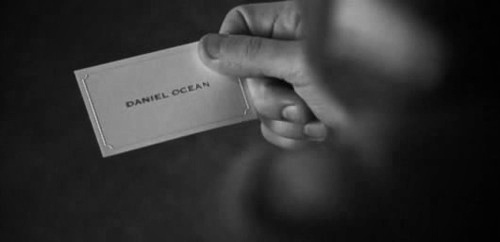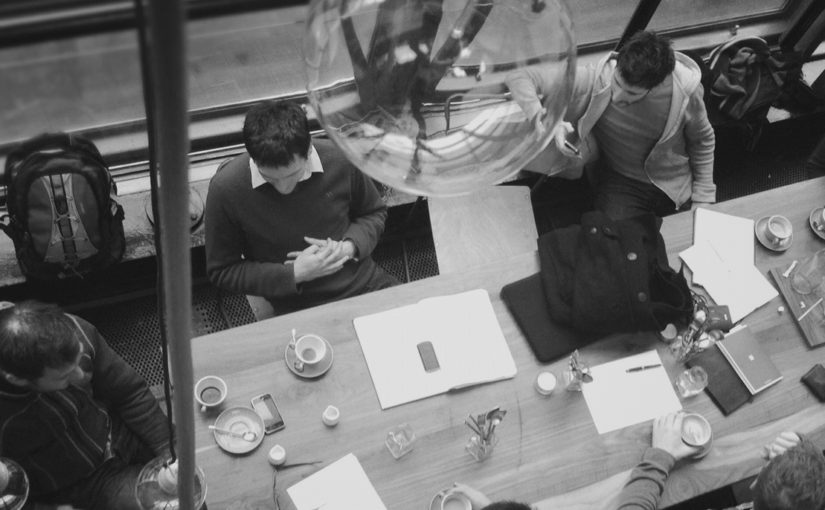These days I get a lot more requests for coffee. My policy in the past was always to say yes to meeting new people. In fact, I wrote a whole blog post about why having coffee with 50 people could change your life. I pride myself on connecting with a random assortment of interesting people across all sorts of industries. I guess you could say that I’m a pretty friendly guy.

Recently I’ve started to notice correlations between whether a coffee meeting is useful and some common factors (that are obvious before we sit down). So I’m starting to filter my inbound coffee requests a little bit more than I used to. I still love meeting new people, but these days a coffee catch-up has to be short, sharp and effective.
In the interests of transparency, I thought I’d share how I’m filtering the inbound requests for coffee. If you’re asking me for coffee it’s worth keeping these in mind. I’ve also talked to CEOs, Angel Investors, and Creative Directors (all of whom are on the receiving end of a lot of coffee requests) about who they have coffee with. They all have some version of these filters in place. If you want to meet amazing people, then you need to have your house in order.
No hidden motives
In the 50 Coffees article I set out a specific way of asking for coffee and proposing a mini-agenda. The worst coffees that I’ve been invited to recently were where the other person had an ulterior motive. If you want to ‘biz dev’ me then don’t ask for a casual coffee, be upfront and ask me for a meeting. Sure, we can have the meeting in a cafe, but we won’t be “having a coffee”, it will be a business meeting that happens to be in a cafe.
Being honest about the intention of the meeting is pretty important. Otherwise it feels like the whole thing is a preamble to the real “ask”. And when it comes to the ask, it makes the preceding conversation feel insincere. Asking someone “for coffee” is best for a general conversation or for a non-financial “ask” like introductions, advice or feedback on an idea.

The filtering part of this factor is that most people can smell an ulterior motive, so you’re best to put what you really want in the email and make the coffee just a follow up. If people aren’t replying to your coffee invitations it might be because they’re afraid that you want something and aren’t telling them.
Professional online reputation
Several marketing people have asked me for coffee recently. They have all claimed that they were awesome at social media marketing and really into the startup scene. But their social media presences suggested otherwise. Even worse, I’ve met some seemingly successful professionals in the startup space recently who didn’t have their basic online presence in order.

So far, my experience is that if you don’t already have your online reputation in order then you are unlikely to make good use of the things that we talk about over coffee, or even to be successful in the long run. Over coffee, one of the things we will probably talk about is whether you are “blogging the journey”. If you don’t even have Twitter, LinkedIn or a blog, then it’ll be an awkward conversation.
For the foreseeable future, I am no longer accepting coffee meetings with people whose professional online presence is not in order. The tell tale signs that I look for are:
- No Twitter account: This shows me you aren’t following the current news in the industry and that you aren’t seeking to build a professional presence in your industry.
- Twitter profile photo isn’t your face: This tells me that you aren’t using Twitter to build professional connections. Or that you don’t realise how important personal connections are and that people are visual creatives. It also makes it hard to recognise you in a crowded cafe when we meet for the first time.
- No public LinkedIn photo: I know that it’s not easy to choose a photo of yourself for LinkedIn, but it doesn’t have to be a photo in a suit, it just has to be normal. The photo has to be set to be public so that I can see it, even if we’re not connected. If you’ve hidden it because of privacy, then you’ve missed the point of social media, the internet and modern business communication and we probably won’t get along.
- No LinkedIn headline: Even if you don’t yet have the job that you want, you can declare your interests or your ideal job title in your heading. Leaving it blank just suggests that you don’t know how to use LinkedIn.
- No blog: This is an extreme test, but one that I’m starting to apply when I’m very busy or you obviously want something from me during the coffee. The blog doesn’t have to be amazing, or even recently updated, or even really a blog, it just needs to be your little corner of the internet. Maybe a portfolio page, some posts on Medium, or a Tumblr with some favourite photos. But it needs to be findable on Google for a search of “your name” or “your name + your city” or “your name + your industry”.
I know several people using tools like Rapportive, Cobook and Nimble that show your social profiles in a preview window next to your name when you email them for the first time. It instantly highlights whether you are professionally credible and some of the tools even show your Klout score next to your email address.
I’m not filtering by follower counts, popularity or Klout score. Some people keep a low profile, are very busy or are just getting started in their career. But having a professional online presence in the first place is now the price of doing business in a modern economy.
I still love meeting new people and I’ve had some great coffees this year. But if you’ve ever found that I or someone else didn’t get back to you after a request for a coffee meeting then maybe we checked you out online and didn’t like what we saw.

I can see your logic behind this screening process, but wouldn’t it be better to time box coffee appointments to 15 minutes for people who dont have complete social profiles?
I guess it depends on who your ‘target audience’ is. I tend to me a few CMOs and large brand marketing execs, and they tend to have fairly poor social profile coverage. Also many startups are too focused on product dev to worry about profile completeness.
I tend to agree to 15 minutes claiming I have another meeting afterwards, then I can ‘rearange’ that meeting if I’m inspired by the conversation.
Having said that, I do tend to have a quick call with people before meeting up for coffee. I guess that qualifies as a screening process of sorts.